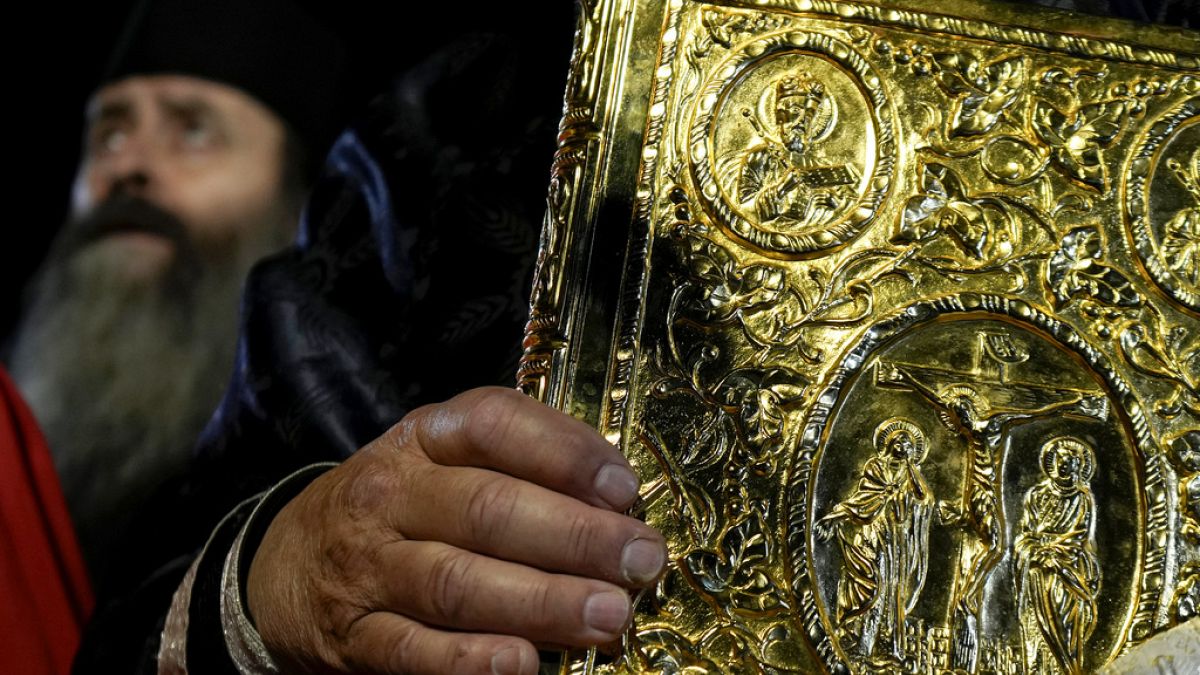A Greek abbot accused of attempting to illegally sell church relics for €200,000 has claimed they were his grandmother’s, presenting his defence during a marathon pre-trial hearing on Thursday.
The abbot, from the Mega Spilaio monastery in the Peloponnese, and five other suspected accomplices were arrested on Monday, following an investigation by Greek police.
The suspects, who are being held in custody while awaiting trial, are accused of forming, directing and joining a criminal organisation. The other charges they face also include embezzlement. The six have denied all the charges against them.
Police said the network attempted to sell 17 Byzantine icons and two rare gospels dated 1737 and 1761 to an undercover female officer for €200,000.
The 69-year-old alleged ringleader maintained contacts with auction houses in Germany and Cyprus for exporting the artefacts abroad, investigators said.
At least one icon and both gospels had been stolen from religious sites in the Sparta region, authorities said.
The investigation began in late July following an anonymous tip, police said. Undercover officers posing as antiquities dealers infiltrated the network through meetings at restaurants, rural locations and inside the monastery itself before the Sunday arrest operation.
The Greek police detained the priest and his assistant in the Kalavryta area of the Peloponnese.
The defendants are expected to remain in custody pending completion of the investigation and formal indictment proceedings. If convicted on all charges, they could face lengthy prison sentences under Greek law.
The Greek Orthodox Church’s Metropolis of Kalavryta immediately dismissed both clerics and appointed Metropolitan Ieronymos to serve as interim abbot.
The Ministry of Culture is currently assessing the objects to ascertain their value.
The Mega Spilaio monastery, meaning “Great Cave,” was founded in 362 and is built into a cliff face near Kalavryta. It houses valuable religious artefacts and played a significant role in Greece’s 1821 War of Independence.
Additional sources • ertnews.gr

